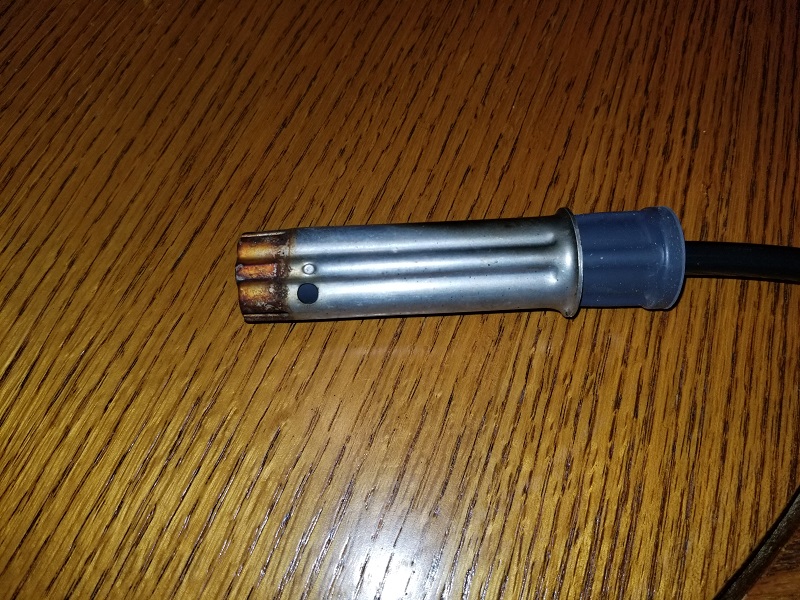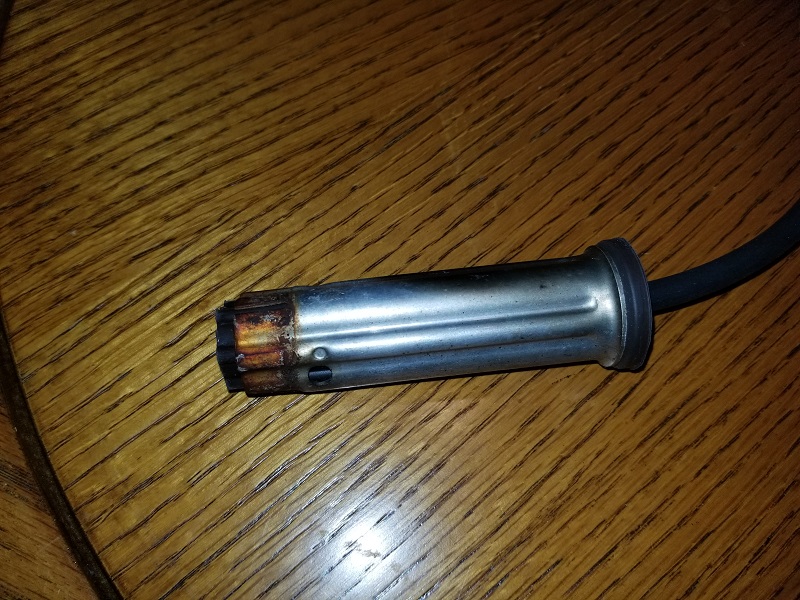I have a question concerning plug wires in general. I have well grounded (pun intended

) understanding of electrical theory, electronics, etc. I have been working on replacing the clutch on my 87 GT for some time (it has been one issue after another, you can read this thread if your interested
87 GT Clutch Issue ). But while things are still accessible, I am using this opportunity to replace things that would be otherwise difficult to replace. So this weekend I started on the spark plugs and the plug wires. I purchased some from Rock Auto, and I am beginning to think that they are not any good. I know some of you will tell me that you get what you pay for, but I honestly don't remember how much I paid for them. They are "Blue Streak" brand plug wires, and what I am finding disturbs me.

I wanted to make sure the wires were sound, so I took a multimeter and checked them. This is what I got:
Distributor Wire, 16" = 230 ohms
Plug Wire 25" = 330 ohms
Plug Wire 28" = 380 ohms
Plug Wire 28" = 1.18 Kohms
Plug Wire 29" = 400 ohms
Plug Wire 30" = 6.03 Kohms
Plug Wire 34" = 1.30 Kohms
To me, it seems that a few of them (28 and 30) seem to be a little out of the expected range tolerance for resistance, but since I don't measure plug wires every time I get a chance, maybe this is normal. As a comparison, I measured another set of wires I got a few years ago, that were sitting on the shelf:
Older Shelf set:
Distributor Wire 16" = 5.28 Kohms
Plug Wire 23" = 7.7 Kohms
Plug Wire 27" = 8.6 Kohms
Plug Wire 27" = 10.10 Kohms
Plug Wire 27" = 9.16 Kohms
Plug Wire 29" = 9.46 Kohms
Plug Wire 33" = 10.08 Kohms
Now these seems to be grouped a little better and within a 10 or 20% tolerance, like most resistor type electrical elements. I know that the plug is the highest resistance element in the ignition system (gap, not the core), and this is why you need a coil to up the voltage to a level that will jump the gap on the plug, so that resistance is very high (100's of mega-ohms) until the gap is bridged and then it drops to almost zero. The built in resistance of the plug electrode and the wires, then, is to keep the current low enough, that it doesn't burn up the coil.
I guess my question ... are the resistance values of the plug wires really that critical? The plug wire and the core resistance of the plug will add together, so they can really be considered one load.
The other thing that bothers me, is the "Blue Streak" wires are supposed to be the better ones, with 8.5mm cores, but their boots for the plugs don't even fit the factory heat shields:
Blue Streak Wire

Cheap auto parts plug wire

Opinions? Thoughts? Condemnations?


















 ) understanding of electrical theory, electronics, etc. I have been working on replacing the clutch on my 87 GT for some time (it has been one issue after another, you can read this thread if your interested
) understanding of electrical theory, electronics, etc. I have been working on replacing the clutch on my 87 GT for some time (it has been one issue after another, you can read this thread if your interested 







